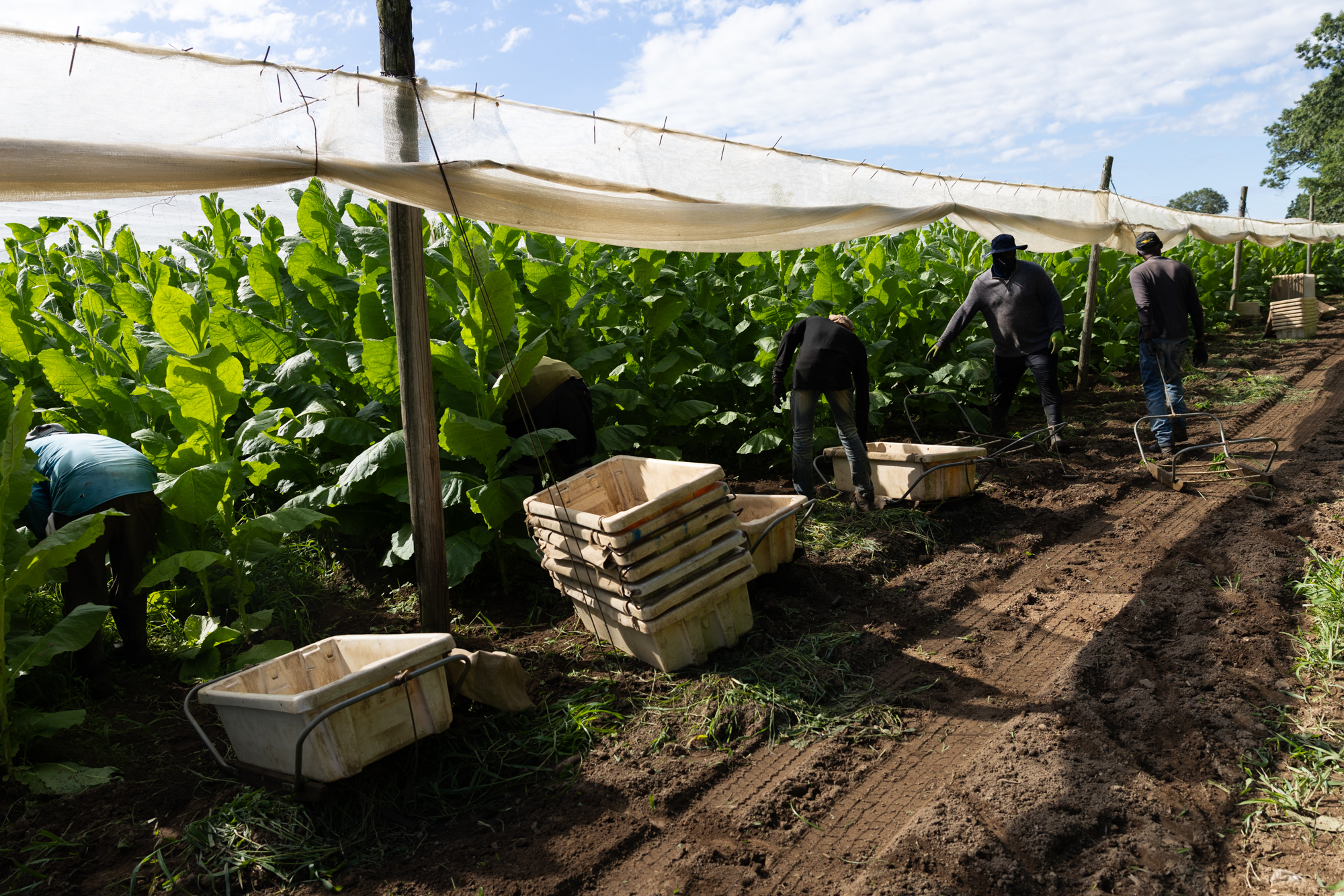World
Connecticut’s Tobacco Industry Faces Decline Amid Global Shifts

Tobacco farming in Connecticut, once a vibrant industry, is now facing significant challenges. A recent discussion between WSHU reporter Ebong Udoma and Dave Altimari from CT Mirror highlighted the state’s struggle to maintain its reputation as a leading producer of high-quality tobacco, particularly the highly sought-after Connecticut shade tobacco.
The Connecticut River Valley has long been known for producing some of the best tobacco leaves in the world, particularly for cigar wrappers. Yet, the region’s tobacco landscape has changed dramatically. Altimari noted that as of now, the only producer of Connecticut shade tobacco is a farmer located in Southwick, Massachusetts. This shift raises questions about the future of tobacco cultivation in Connecticut, which has a storied history in this industry.
Several factors have contributed to the decline of tobacco farming in Connecticut. Altimari explained that Connecticut shade tobacco is difficult to grow and requires extensive labor. It involves six separate pickings, and the plants can reach heights of up to 12 feet. Farmers must carefully handle the leaves, which are sensitive to damage. As Altimari mentioned, “If it is ripped, it can’t be used to wrap.”
In addition to the labor-intensive harvesting process, the climate and soil conditions in Ecuador have led many large cigar companies to shift their operations there. The cost of production is significantly lower in Ecuador, where the climate closely resembles that of the Connecticut River Valley. Consequently, many companies now source what they refer to as Connecticut seed shade tobacco from Ecuador, which is not identical to the premium product traditionally grown in Connecticut.
The tobacco industry in Connecticut is not entirely gone, as some farmers have adapted by growing broadleaf tobacco, which is easier to cultivate and primarily used as filler in cigars. Broadleaf tobacco requires a different growing approach, allowing farmers to harvest the entire plant at once, making the process less labor-intensive compared to shade tobacco.
Despite the challenges, there remains a market for Connecticut shade tobacco. Dwight Arnold, the sole producer in Southwick, maintains a contract with a company that produces Macanudo cigars. According to Altimari, Arnold expands his operation, growing from 15 acres to 35 acres, with plans to reach 50 acres in the near future.
The current state of Connecticut tobacco farming is a blend of nostalgia and potential revival. After Altimari’s article was published, he received inquiries from former tobacco farmers interested in returning to the craft. “You’d be surprised how many farmers miss growing it,” he stated. This sentiment suggests that while the industry may never return to its former glory, there is still a passion for Connecticut tobacco among those who once cultivated it.
As the state grapples with the future of its tobacco industry, the resilience of local farmers and their commitment to quality may pave the way for a new chapter in Connecticut’s agricultural history. The legacy of Connecticut shade tobacco continues to hold significance not only in the state but also in the global market for high-end cigars.
Local journalism remains crucial in navigating these changes. CT Mirror continues to provide insightful reporting on this evolving situation, reinforcing the importance of trusted journalism as communities adapt to shifting economic landscapes.
-

 Top Stories4 weeks ago
Top Stories4 weeks agoTributes Surge for 9-Year-Old Leon Briody After Cancer Battle
-

 Entertainment2 months ago
Entertainment2 months agoAimee Osbourne Joins Family for Emotional Tribute to Ozzy
-

 Politics2 months ago
Politics2 months agoDanny Healy-Rae Considers Complaint After Altercation with Garda
-

 Top Stories2 months ago
Top Stories2 months agoIreland Enjoys Summer Heat as Hurricane Erin Approaches Atlantic
-

 World3 months ago
World3 months agoHawaii Commemorates 80 Years Since Hiroshima Bombing with Ceremony
-

 Top Stories3 months ago
Top Stories3 months agoFianna Fáil TDs Urgently Consider Maire Geoghegan-Quinn for Presidency
-

 World3 months ago
World3 months agoGaza Aid Distribution Tragedy: 20 Killed Amid Ongoing Violence
-

 World3 months ago
World3 months agoCouple Convicted of Murdering Two-Year-Old Grandson in Wales
-

 Top Stories4 weeks ago
Top Stories4 weeks agoNewcastle West Woman Patricia Foley Found Safe After Urgent Search
-

 Top Stories2 months ago
Top Stories2 months agoClimbing Errigal: A Must-Do Summer Adventure in Donegal
-

 Top Stories2 months ago
Top Stories2 months agoHike Donegal’s Errigal Mountain NOW for Unforgettable Summer Views
-

 World3 months ago
World3 months agoAristocrat Constance Marten and Partner Convicted of Infant Murder









